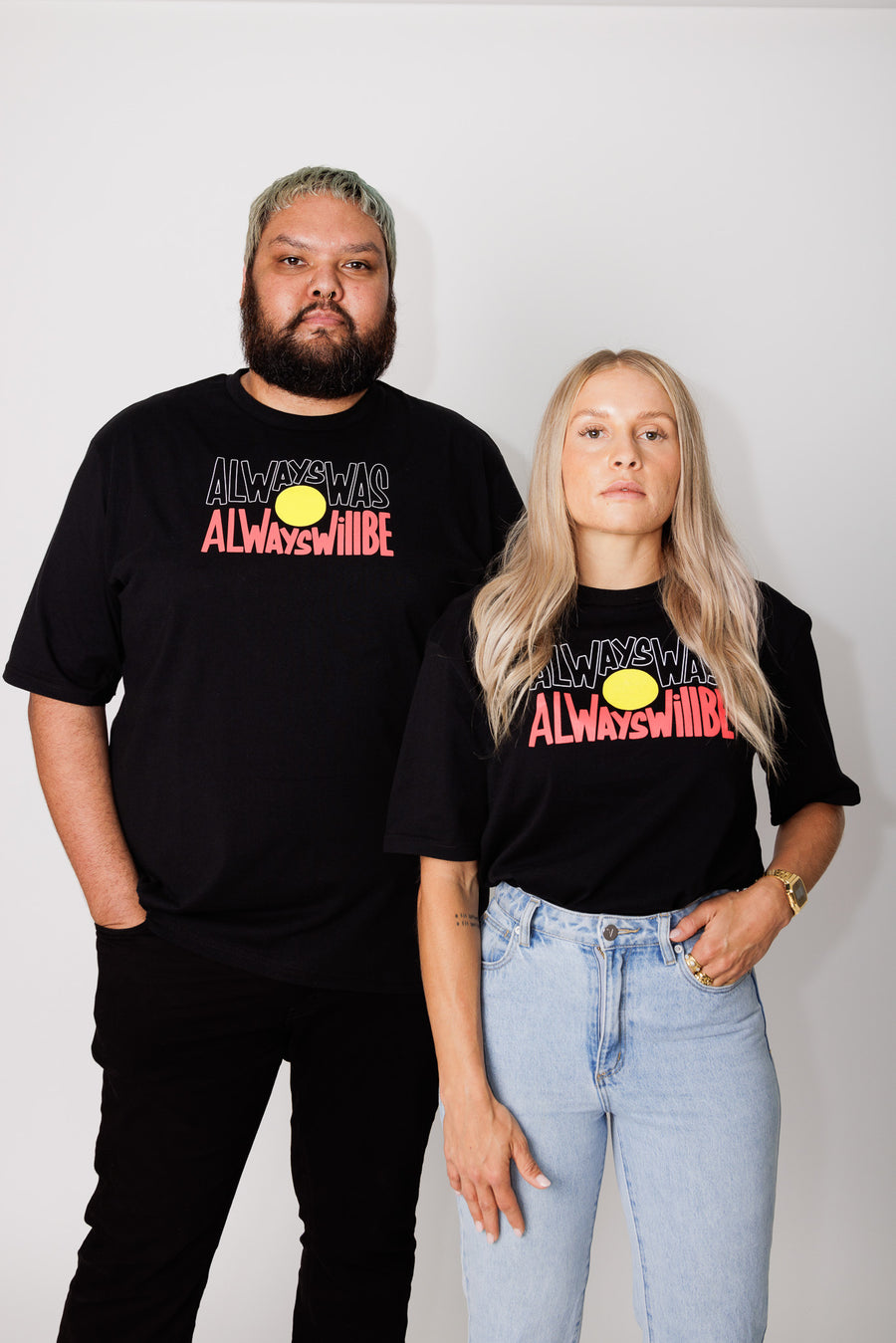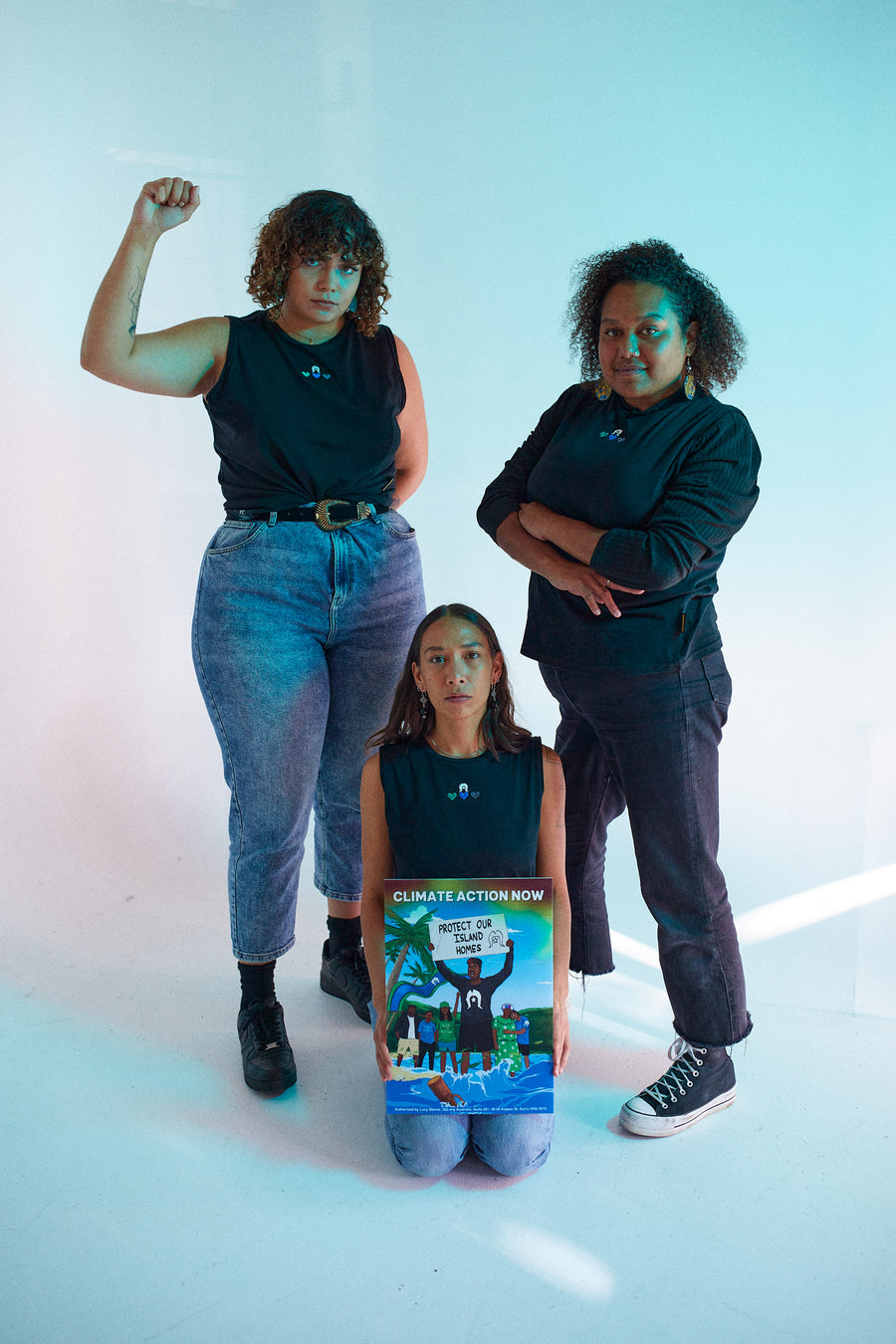More Than Land Rights

Mabo Day (June 3rd) is a significant day in Australian history but especially for Aboriginal and Torres Strait Islander people. It commemorates the efforts of Eddie Koiki Mabo among others and their monumental fight for land rights against the state of Queensland.
In 1992, June 3rd was the day that for the first time since colonization that Terra Nullius was rejected, and Aboriginal and Torres Strait Islander people were legally recognized as the first people of this land. The legal battle began as a fight for Mer Island but soon became a land rights fight for all of Australia allowing Mob to claim rights to their ancestral lands.
My name is Peta, I am 22 years old, I am a proud Meriam and South Sea Islander and I am the granddaughter of Drs. Eddie and Bonita Mabo. I was born in Townsville, North Queensland (Gurambilbarra, Yunbenun, Bindal, Gugu Badhun and Nywaigi land), completed my BA degree in psychological science at Bond University on Bundjalung country (Gold Coast) in 2018 and am currently living and working in Naarm (Melbourne) as a project support officer at Clothing The Gaps.

Polaroid: Me on my first day at CTG!
For many Mob and their countries Mabo Day means many things. It means recognition, it’s a crucial moment in our history, and it’s the opportunity for the continuation of the deep connection to land that is core to spiritual, cultural and religious wellbeing for Aboriginal and Torres Strait Islander people.
But for me personally, it’s a day that comes around once a year that I get to reflect and be extra proud of my grandparents and their legacies.

Photo: Eddie Koiki Mabo, my Ata (grandfather)
An Island Man
This monumental event in Australian history started with one island man, Eddie Koiki Mabo. My mother’s father. He was a Meriam man from Mer (Murry) Island in the Torres Strait. Eddie was his English name, Koiki (pronounced koi-key) was his island name and Ata is what I call him (it means grandfather).
Ata grew up immersed in his culture and was taught from a young age Malo’s Law, some of which is – tag mauki mauki, te ter mauki mauki. This law is central to the customary system of the Torres Strait as it’s believed to have been handed down by the God, Malo. Tag mauki mauki, te ter mauki mauki translates to – do not touch what does not belong to you and do not set your foot on land that is not yours. On a deeper level, it gives Meriam people our framework for our social, moral and religious beliefs. This law was the initial framework for ownership and inheritance practices and has been around for generations.
When understanding the context of this law and its importance to Meriam people, it’s no surprise that Ata was so outraged when he was told that his ancestral land apparently didn’t belong to him.
It was in the late 70s when he first learnt of his island supposedly being ‘Crown Land’ from two historians at James Cook University that sparked the fire that he would continuously fight for the next 10 years.

Photo: Ata (Eddie Mabo) teaches a lecture to students at James Cook University about Meriam practice and culture,1973.
The Legal Battle
In 1982 the legal proceedings of the case began with the plaintiffs my Ata (Eddie Koiki Mabo), Reverend David Passi, Sam Passi, James Rice and Celuia Mapo Sale. Together they challenged the State of Queensland claiming ‘Native Title’ to the Murry Islands. This case became known as Mabo v. Queensland (No. 1) Mabo (No 1) was then appealed to the High Court of Australia (Mabo v Queensland (No 2) and was the first court case of its kind in Australian history to challenge:
1) The assumption that Aboriginal and Torres Strait Islander people had no concept of land ownership before the arrival of British settlers; and
2) That sovereignty and ownership of all land was ceded to the crown.
The case presented by Ata and the plaintiffs successfully proved that Meriam custom and laws are fundamental to their traditional system of ownership and underpin their traditional rights and obligations in relation to land.
On June 3rd 1992, six out of seven high court judges ruled that this continent was not Terra Nullius when the British arrived in 1788, and that Meriam people were ‘entitled to possession, occupation, use and enjoyment of (most of) the lands of the Murray Islands’.
As a result of this massive win, the High Court of Australia abolished the 17th century old legal fiction of Terra Nullius and handed down a new doctrine of Native Title.
Native Title
Native Title recognizes that Aboriginal and Torres Strait Islander people had prior rights to land, and that these rights exist today. Furthermore, the Native Tital Act 1993 (Cth) was passed through Australian Parliament which created an avenue for Aboriginal and Torres Strait Islander people to claim their traditional rights to their ancestral lands.
Unfortunately and sadly, Ata passed away 6 months before the historic overturning of Terra Nullius.

Photo: My mother Bethel (Left), Grandmother Bonita and my Aunty Maleta (right) celebrating the landmark court case ruling, 1993.
But what did this mean for the rest of Australia?
This was a landmark case for the recognition of Aboriginal and Torres Strait Islander people and is celebrated amongst Indigenous communities.
However, the Native Title Act 1993 only allows for traditional owners to claim land that is currently under ‘Crown Land’. We have no rights to any land that is currently privately owned. Furthermore, the processes of claiming land have been made extremely difficult. Nevertheless, at the time of the ruling in the 1990’s, the media was instilling fear into the rest of Australia in statements such as “If Mabo win, the Aboriginal people will come for your house and property”. Politicians such as Pauline Hanson still believe that the Mabo Case has dispossessed non-Indigenous people from their properties, which is simply not true.
Behind every great man is an even greater woman.
As informative as I am trying to be for the public who may not know much about Mabo Day, I don’t want to just re-tell facts that anyone can just google or read about on other websites. This is my perspective and my retelling of history, yes, but this blog is also an insight to my grandparents. Which is why I want to talk about my grandmother.
Behind every great man is an even greater woman.
In 1952, Ata married my grandmother Bonita Neehow (Nornie is what I call her) who was an Aboriginal and South Sea Islander woman born in Halifax with cultural roots from Palm Island and Vanuatu. Together they establish Australia’s first black community school and became prominent activists for the rights and recognition of Aboriginal, Torres Strait and South Sea Islander people. All while raising ten children together.
In her own right, Nornie was a force to be reckoned with. After the passing of my grandfather in 1992, Nornie went on to continue fighting for the recognition of slavery in Australia and the illegal practice of blackbirding throughout the Pacific Islands during the mid to late 19th century.

Photo: Nornie, being staunch and deadly.
Blackbirding was the practice of coercing or kidnapping people from the surrounding pacific islands and bringing them to Australia to work on the sugar cane plantations. Over 50 000+ people were stolen and brought to Australia from 80 different islands. Some argue that this practice was not slavery and as they were considered indentured laborers. Regardless, being taken and forced to work for basic human necessities such as food, water and shelter is still slavery. As Scott Morrison ignorantly stated “Australia did not have slavery” was another colonial lie that erased the history of my ancestors and the efforts my grandmother made towards the recognition of this past injustice.
In 2013, Nornie was appointed an Officer of the Order of Australia, and in 2018 received an Honorary Doctorate of Letters from James Cook University for her outstanding contribution to social justice and human rights for fighting for the recognition of the 50,000+ lives that had been swept under the rug of Australia’s history.

Photos: (left) Nornie being presented with he Order of Australia at Government House in Canberra by the Governor-General, Her Excellency the Honourable Quentin Bryce AC CVO, 2013.

Photos: (front) Nornie receiving the Honorary Doctorate of Letters from James Cook University in a private ceremony, 2018.
The Mother of Native Title
Often, people recall Bonita Mabo as ‘the Mother of Native Title’ and the greatest supporter of her husband. But she was also the biggest supporter of her children and grandchildren.
She was my favorite visitor, my favorite cook, my favorite joker and my favorite poet and storyteller. I still remember being so excited when she would come to visit us from Townsville because she would always bring a grocery bag full of mangoes from her tree, eroh (bell fruit) and salty plums for us to eat.

Photo: Me (Left) and Nornie (Right)
So for me, Mabo Day is not just a day to celebrate Land Rights, the abolishment of Terra Nullius or the passing of the Native Title Act. It celebrates the movement that has allowed Aboriginal and Torres Strait Islander people to reclaim their lands and maintain our spiritual connections, and thus contributing to our collective legacy of being the oldest surviving culture in the world. It’s also a day to also celebrate Nornie and her achievements, while recognizing the presents of South Sea Islander people within the Australian context.
In my family, we celebrate both my grandparents. Who they were, their legacies, their impacts on our lives and their impacts on many others. It was Nornie’s final hope that Mabo Day would become a national public holiday before she passed away in 2018.
For everything that this day represents, I hope Mabo day becomes a public holiday one day too.





Thank you Peta for sharing your story of your Ata he was a very respected man who believed in Connections and Culture for all lands for First Nations people. This has been a great wake up call for all non-Aboriginal people and Government Services to acknowledge the facts of your Ata’s journey for Rights of Native Titles within Australia and his people up there in the Murray Islands.
That’s a beautiful piece of family history Peta and I hope Australia embraces it with open arms.
Thank you for sharing, Peta <3 I also hope Mabo Day becomes a nationwide public holiday to celebrate one of many important indigenous legacies!
Thanks for sharing Peta! An amazing story and achievement that all of us can be proud of. ❤️
Hi Peta, thank you for sharing this powerful story, this history is so important to the story of our nation. I’ve just changed my kids home schooling program for today to focus on Mabo day. We’re leaving about past and present and looking at ideas of how this special day can influence our future.
My daughter had a question of whether we could commemorate and acknowledge the day by saying something like ‘Happy Mabo Day’ or ‘Respect to Mabo’ to each other. And we wonder your thoughts on the idea?
Much gratitude
Jane Fenn
Leave a comment